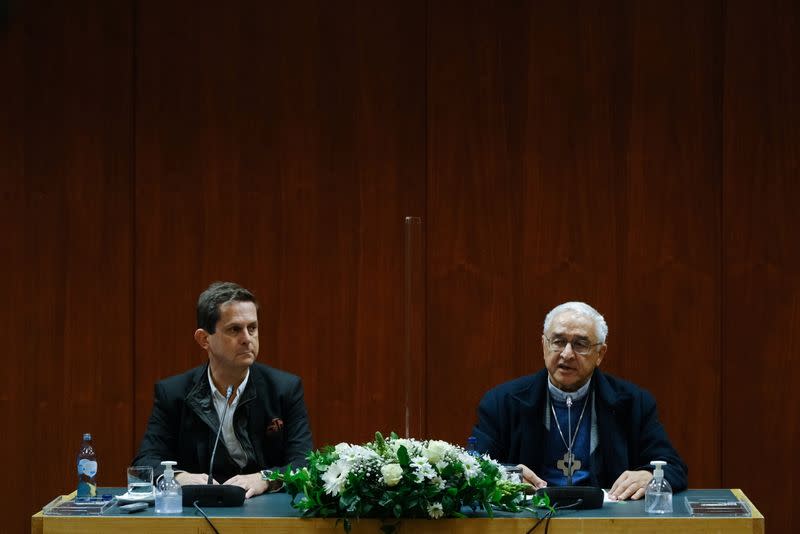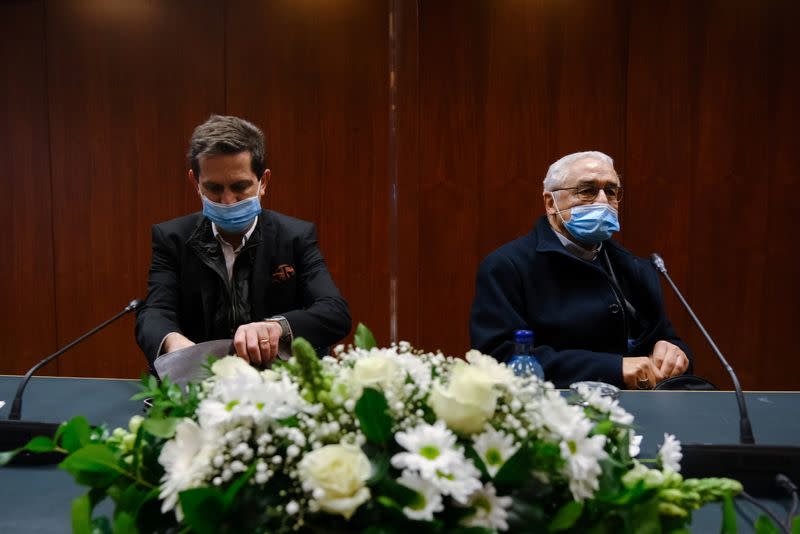Portugal urges victims of clergy sexual abuse to break the silence
(Corrects para 6 to say commission hopes to present report by end of 2022, not 2023)
By Catarina Demony and Miguel Pereira
LISBON (Reuters) -A commission investigating allegations of historical child sexual abuse by members of the Portuguese Catholic church urged victims on Thursday to speak up and help them lift a veil of silence around the issue.
"We want (victims) to report, finally and without fear, what happened to them," the head of the newly-created commission, psychiatrist Pedro Strecht, told a news conference during which he announced the team conducting the investigation.
Portugal's Bishops Conference announced the creation of the body last month after a major investigation in France revealed that around 3,000 priests and religious officials sexually abused 200,000 children over the past 70 years.
The Roman Catholic Church has been rocked by sexual abuse scandals around the world, often involving children, over the past 20 years.
"The Portuguese church is the first to want to shed light on this issue," said Jose Ornelas, head of the Bishops' Conference. "If I expect many or few cases? I don't know what to expect."
Strecht named an investigative team of five, including a judge, a sociologist and even a film-maker. They hope to present the report by the end of 2022.
Victims will be able to report via a website, a phone number and e-mail address. Strecht said the commission counts on the collaboration from the church to access the institution's files.
The investigation is being financed by the Catholic Church itself. Asked if that could be a threat to the commission's independence, Strecht said he would be the first to walk out and denounce if the church intervenes in the process.
"It's very good they are investigating this...(but) It should have already been investigated," said 61-year-old Lisbon resident Isabel Pagani.
Jaime Oliveira, 72, similarly opined the commission "comes a little too late", but it should investigate any abuse, which he called unacceptable, "to the very end".
(Reporting by Catarina Demony, Miguel Pereira and Pedro Nunes; Editing by Andrei Khalip and Angus MacSwan)

 Yahoo News
Yahoo News 








